
Upon arriving at Kilimanjaro International Airport (JRO), you will be welcomed by a Shammah Wonders Safaris representative and transferred to your hotel. The hotel ensures a comfortable stay with amenities such as cozy rooms, hot water, courteous staff, a swimming pool, and internet access. In the evening, you’ll have a briefing with our managers to ensure you are prepared to start your climb.
Private tour packages include shared airport transfers for your group. Additional charges apply for extra individual transfers, so coordinate your group's arrival and departure times to avoid extra costs.
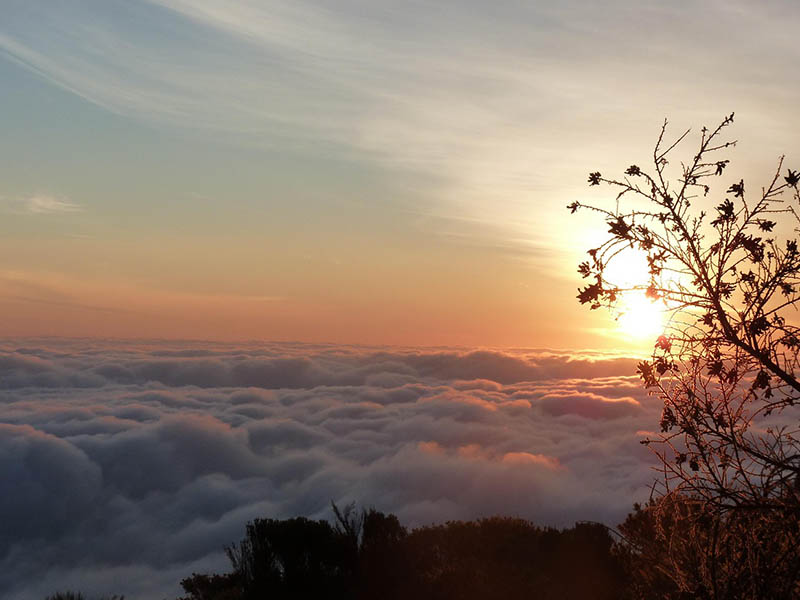
Your guide and climbing support team will meet you at your hotel in the morning. After introductions and a final equipment check, you will be driven to the Umbwe Gate of Kilimanjaro National Park. This starting point, located at 1,800 meters (5,904 feet) above sea level, is where your trek begins. The head guide will complete the permits and register for search and rescue services.
On your first day of trekking, you will aim to reach Umbwe Camp for your initial overnight stay. Climbing to 2,850 meters (9,348 feet) involves a substantial altitude gain, so it’s important to find a comfortable pace for the entire group and maintain it. This section of the Umbwe route passes through the rainforest, so there is a high chance of rain – remember to bring your raincoat! By the time you arrive at the camp, your support crew will have set up and prepared dinner.
PLEASE NOTE: This will be your first day at this elevation, so it is highly recommended that you follow these guidelines from now on:
- Drink more than 4 liters of bottled water daily, sipping frequently and in small amounts.
- To help prevent altitude sickness, consider using a high-altitude aid medication. Many climbers take these pills in the morning before starting their ascent to lessen the discomfort associated with altitude sickness. Our managers will provide detailed information along with your travel itinerary. We also advise consulting your doctor before your trip to discuss any potential allergies or health concerns.
- At night, you may experience discomfort due to acclimatizing to the high altitude. Since your breathing slows down at night, your body receives less oxygen than during the day. This can lead to feelings of sickness and headaches. Pay close attention to your body and inform your guide if you experience any symptoms of altitude sickness.

The day begins with an early wake-up call and a hearty breakfast before your team sets off for Barranco Camp. The rainforest will soon transition to moorland, and if the sky is clear, you will catch your first glimpse of Meru Volcano. The trek for today is of moderate length, and you are expected to reach Barranco Camp (3,900 meters / 12,792 feet) by around lunchtime. This camp is situated within a massive volcanic fault. Upon arrival, lunch will be served, and you will have the rest of the day to relax, which greatly aids in the acclimatization process.
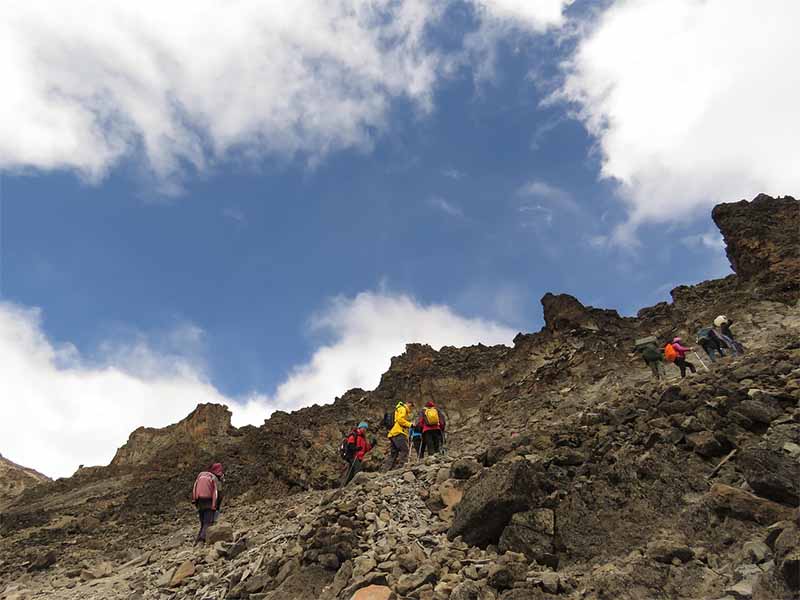
This day starts with another early wake-up call and a hearty breakfast before your group begins the climb up the Barranco Wall. It’s recommended to leave camp as early as possible to avoid the crowds from other groups that could slow you down. The hike up the gorge wall is not difficult and takes about an hour. Once at the top, you can rest and take photos with the Kibo volcano as your backdrop.
Next, you'll embark on a more challenging hike to Karanga Camp, which involves several ascents and descents along the way. But don’t worry—our guides are skilled at setting a comfortable pace for the group. Upon reaching Karanga Camp, you will be served a warm lunch. After a few hours of rest, you will go on an acclimatization hike toward Barafu Camp, gaining 200 meters (656 feet) in altitude before descending back to Karanga Camp.
**PLEASE NOTE:** The acclimatization hike is a simple trek with a slight altitude gain designed to enhance the acclimatization process. Taking these hikes seriously is crucial as they improve your chances of successfully reaching Kilimanjaro's summit and help prevent altitude sickness.
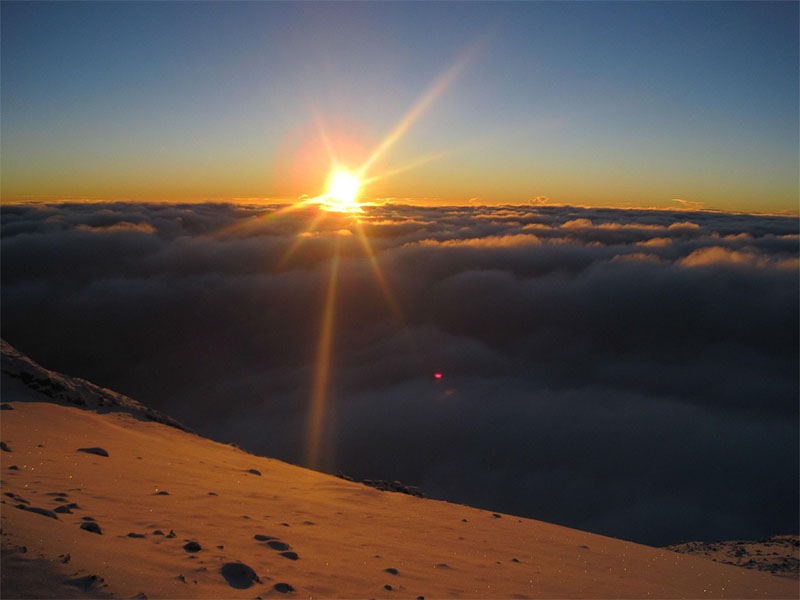
In the morning, after breakfast, you will start your hike to Barafu Summit Camp (4,673 meters / 15,327 feet), which serves as the launching point for the nighttime ascent to Uhuru Peak (5,895 meters / 19,336 feet). Our team will have your camp set up in advance, including tents and sleeping bags, so you can relax upon arrival. After resting and regaining your energy, you'll need to go on an acclimatization hike towards the intermediate Kosovo Summit Camp (4,870 meters / 15,974 feet) before returning to Barafu Camp for a hot dinner. It's best to spend the rest of the day resting and sleeping in preparation for the night summit.
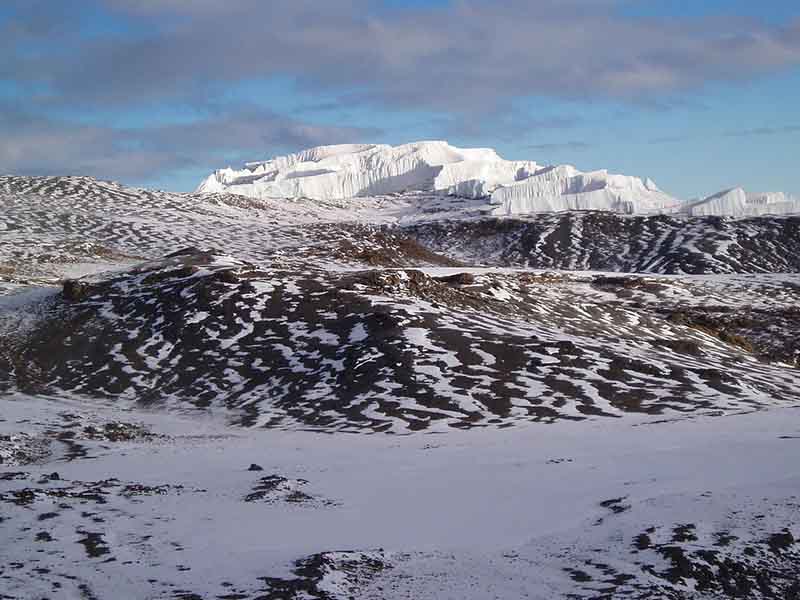
The group departs Barafu Camp around midnight to begin the ascent to the summit of Kilimanjaro, aiming for Uhuru Peak (5,895 meters / 19,336 feet). Although the climb isn't technically challenging, the high altitude makes even normal physical activity feel demanding. To ensure everyone's safety, we assign a personal guide to every two climbers to closely monitor their physical and mental condition. Upon reaching Uhuru Peak, you have the option to walk to one of Kilimanjaro’s glaciers. The group will then return to Barafu Camp for a 2-hour rest before continuing the descent to Millenium Camp at 3,950 meters / 12,956 feet.
**Please note:** While descending brings relief from the high altitude, it is also the phase where most accidents and injuries (up to 90%) occur. To avoid falls, potential fractures, and damage to your toenails, be sure to watch your step carefully.
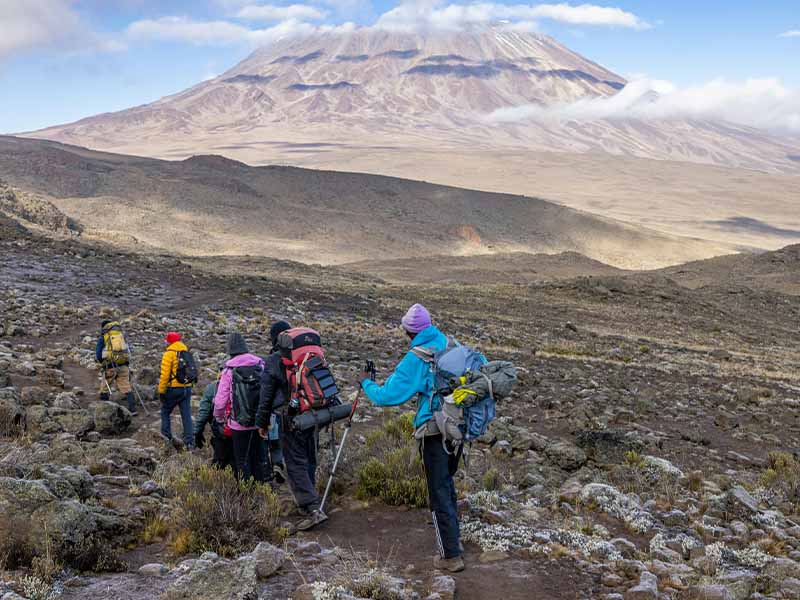
Millennium Camp is nestled within a rainforest. The lower altitude and the satisfaction of having achieved your goal contribute to a restful night’s sleep. After breakfast, the group will embark on the final leg of the journey toward Mweka Gate, the national park exit (1,640 meters / 5,379 feet). This will be your last chance to share memories of the climb with your guides and support team. You will receive your certificates of accomplishment at our offices before being driven back to your hotel.
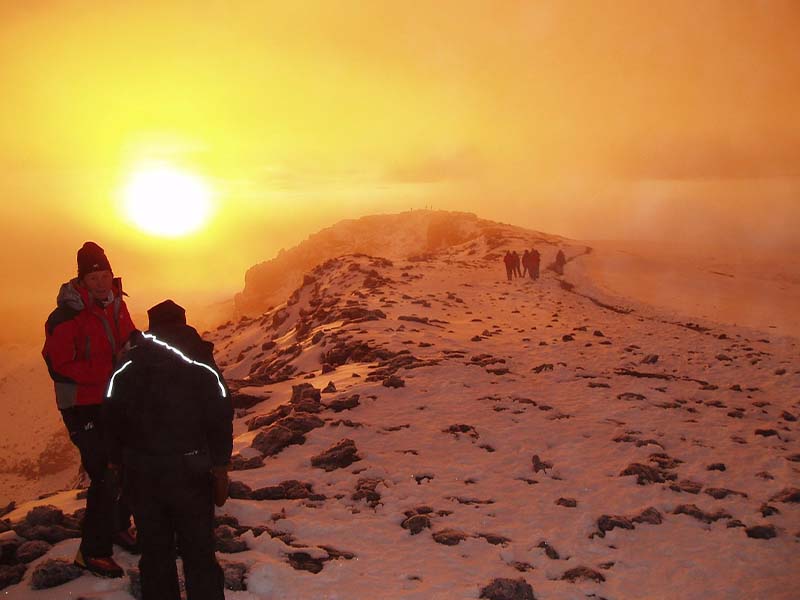
Rest in the hotel and transfer to the airport.
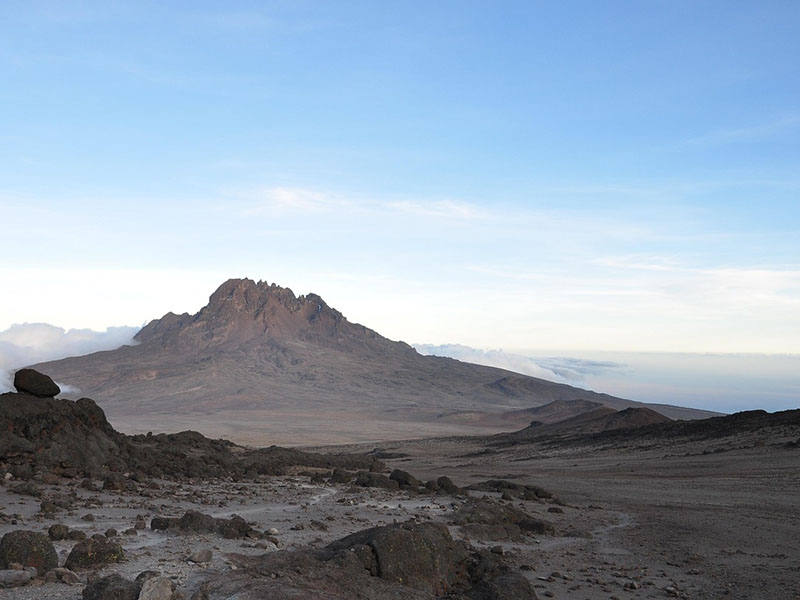
-Experienced mountain guides and porters.
-All park fees and camping permits.
- Full-board accommodation during the trek.
- Camping equipment including tents and sleeping bags.
-Nutritious meals are prepared by our professional camp chef.
-Portable toilets and dining tents. Emergency medical evacuation support.
-Airport transfers to and from Kilimanjaro International Airport (JRO).
-International flights and visas.
-Travel insurance (required).
- Personal hiking gear and equipment.
- Tips for guides, porters, and other staff.
-Additional accommodation and meals before or after the trek.
-Optional activities and excursions.
- Any expenses of a personal nature.